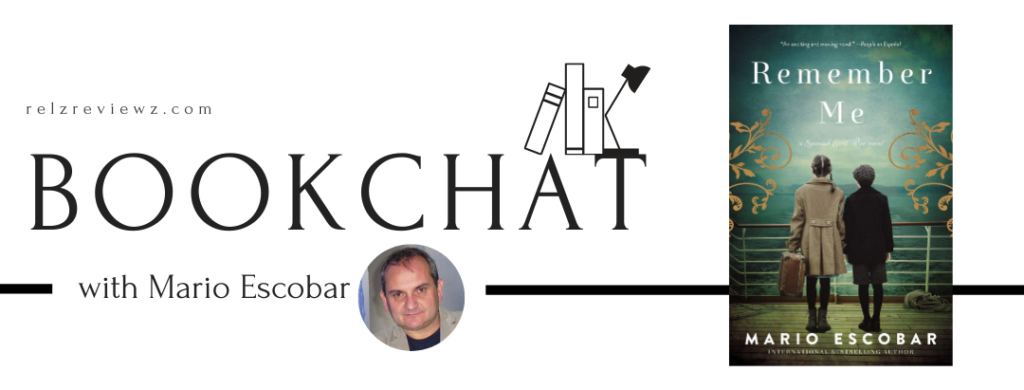
I’m thrilled to have international bestseller, Mario Escobar, share about his latest novel translated into English, Remember Me. This 20th-century historical novel of tragedy and resilience is inspired by true events during the Spanish Civil War when children were sent across the world in an effort to protect them from the tragedy that had befallen a nation.
Enjoy these insights into Mario’s characters, his writing process, and authors he’s been reading. Thomas Nelson has generously provided a copy of Remember Me to give away, so be sure to enter for the chance to win this story below.
Over to you, Mario…
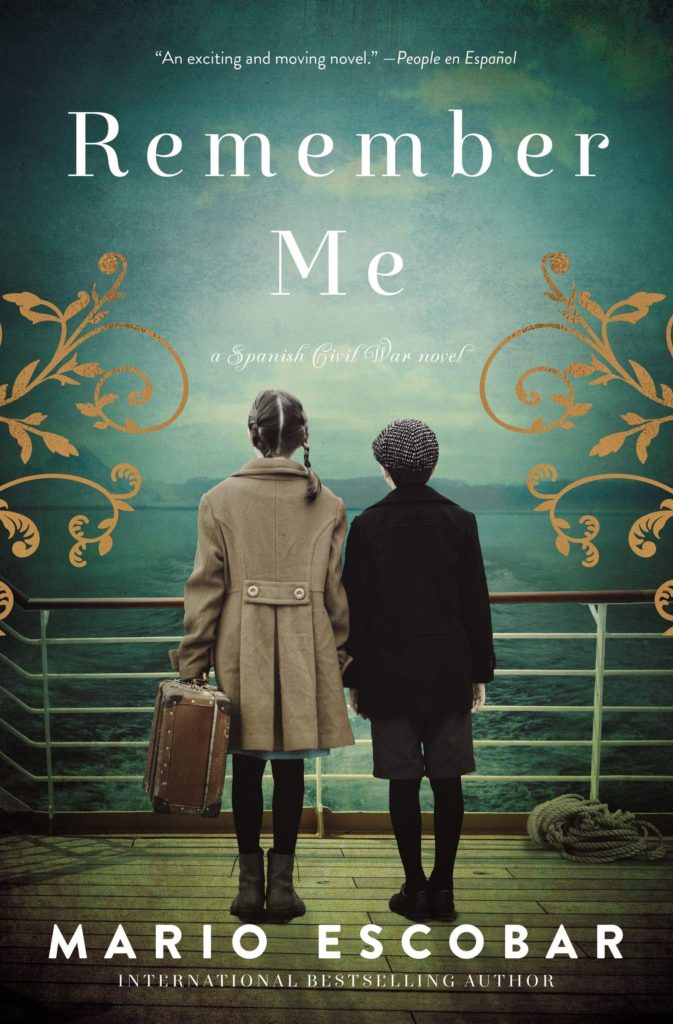
Amid the shadows of war, one family faces an impossible choice that will change their lives forever.
Madrid, 1934. Though the Spanish Civil War has not yet begun, the streets of Madrid have become dangerous for thirteen-year-old Marco Alcalde and his younger sisters, Isabel and Ana. When Marco’s parents align themselves against General Franco and his fascist regime, they have no inkling that their ideals will endanger them and everyone they love—nor do they predict the violence that is to come.
When the Mexican government promises protection to the imperiled children of Spain, the Alcaldes do what they believe is best: send their children, unaccompanied, across the ocean to the city of Morelia—a place they’ve never seen or imagined. Marco promises to look after his sisters in Mexico until their family can be reunited in Spain, but what ensues is a harrowing journey and a series of heartbreaking events. As the growing children work to care for themselves and each other, they feel their sense of home, family, and identity slipping further and further away. And as their memories of Spain fade and the news from abroad grows more grim, they begin to wonder if they will ever see their parents again or the glittering streets of the home they once loved.
Based upon the true stories of the Children of Morelia, Mario Escobar’s Remember Me—now available for the first time in English—explores the agony of war and paints a poignant portrait of one family’s sacrificial love and endurance.
Bookchat with Mario
Share a little about your characters, Marco, Isabel, & Ana.
Marcos, Isabel, and Ana represent the millions of refugee children in the Spanish Civil War and the different wars in Europe. A whole generation truncated by the violence and fanaticism of the 30s. The three are very close, they belong to a working family that struggles to survive amid the chaos of the time. Marcos greatly admires his father, an idealistic man, but just and honest. The duty of Marco, who is the eldest, will be to keep his sisters safe and ensure that they do not forget their parents or their country
Describe your book in 5 adjectives
Honest, sensitive, loyal, inspiring and sincere.
What is Marco’s greatest challenge as he cares for his sisters on the voyage to Morelia?
Marco is a teenager who has never been far from his family, and together with his sisters he has to make a dangerous journey through Spain—which at that time is at the crudest moment of the Civil War—tour France and escape from fascist agents who kidnapped children. The dangers will continue on the ship and will not end until the end of the book.
What led to the Mexican government offering refuge to Spanish children?
Several Latin American countries created the Committee to Help the Children of the Spanish People. Its president was Doña Amalia Solórzano, wife of Mexican President Lázaro Cárdenas del Río, who tried to help the children within the country, but due to the constant bombardments they decided to remove some five hundred children and take them to Mexico. Many other refugee children went to Belgium, the Netherlands, the United Kingdom and Russia. Most of the children thought they would spend a summer away from their parents, but most never returned. Their parents died during the war or were assassinated by the fascist forces.
Share a favourite line or passage from the book, please.
“We move a few steps, and utopia retreats as if hoping to escape our small, selfish desires. The moment we make utopia fit our plans and schemes, it disappears. It never serves individualistic interests because there’s always something to improve, something else to fight for.“
Which character did you enjoy writing most?
It is difficult to choose just one of the characters. Besides Marcos, I am fascinated by the principles of his parents and the teacher Germinal, who shows how political fanaticism and extremism always face reason and the values of tolerance.
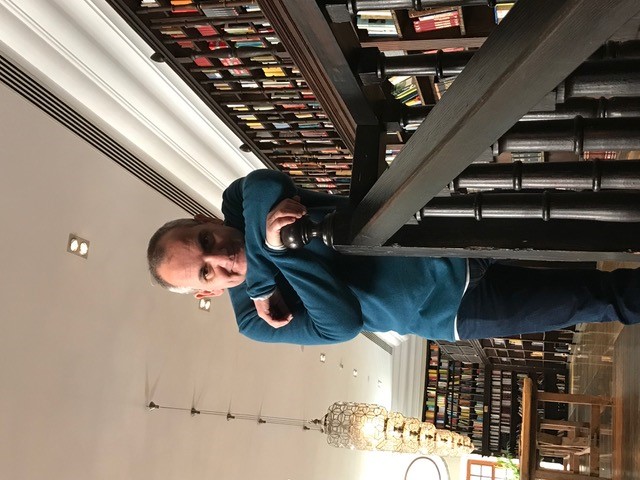
Which character gave you the most grief?
Without a doubt Marcos’s mother. I have always been very empathetic with the suffering of women, especially mothers. I was thinking, how would my mother and wife feel if they had to let their children escape their country and be away from them. This experience is that of millions of people today. There are more than 75 million refugees around the world and in many cases, very few countries host them. More than a million Spaniards fled the country during the Civil War, many returned, but many others were uprooted forever.
What emotions did you experience writing this book?
When writing, I always ask myself the same thing. What would I have done in that situation? The truth is that this attitude helps me empathize with the characters, but also causes me to suffer a lot with them.
What sources did you use to research the experiences of the Children of Morelia?
In addition to reading all the books that have been written on the subject, including several testimonies from children from Morelia, I researched the Civil War and the situation in Mexico. As an historian, I really enjoy the research process.
Your books have first been published in Spanish and now in English – have you been surprised how readers have responded to your stories in predominantly English speaking countries?
It is very difficult for books to be translated into English, so for me it is an honor that Anglo-Saxon readers read me. My books have been a success in Canada, the United States, Australia, South Africa and New Zealand. I think the secret is that my novels are about the heart. All human beings have the same hopes and fears, and in the end we all belong to a single human family. My novels are intended to show that through feelings, we can understand people different from ourselves and empathize with them.
The Spanish Civil War is not very well known in my country of Australia. How has it impacted the Spain we see today?
Spain is still traumatized by its Civil War. The country was divided between the losers and the victors—the dictatorship of General Franco deepened these divisions even more. In my country, the war is explained very badly and also in a partisan way. To overcome a national trauma, the power of love, forgiveness and the stark truth is always needed.
Share some books you have loved reading this year.
There are many. From essays by historians like Paul Preston and biographers like Andrew Roberts, to novels by Kenn Follett, Jöel Dickers, Arturo Pérez Reverte or Isabel Allende.
What’s in your writing pipeline?
Right now, I’m writing my next novel for HarperCollins and a new one with Thomas Nelson is coming out next year. It is a beautiful novel about a librarian in Saint-Malo, France, during the Nazi occupation and her struggle to save her city’s library.
Thanks so much, Mario – such a delight to have you share!
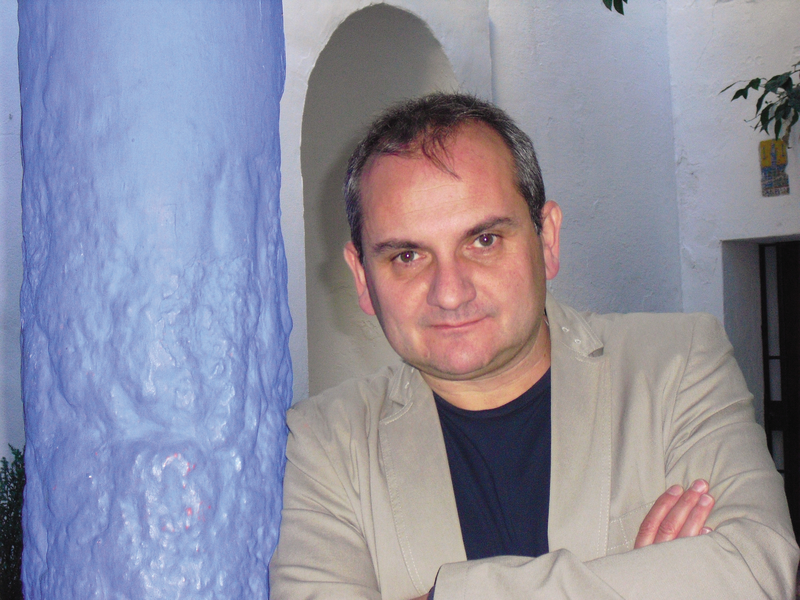
Mario Escobar Golderos (Madrid, Spain) has a degree in History, with an advanced studies diploma in Modern History. He has written numerous books and articles about the Inquisition, the Protestant Reformation, and religious sects. He is the directs the magazine New story for debate, in addition to being a contributing columnist in various publications.
Passionate about history and its mysteries, Escobar has delved into the depths of church history, the different sectarian groups that have struggled therein, and the discovery and colonization of the Americas. He specializes in the lives of unorthodox Spaniards and Americans.
Relz Reviewz Extras
Visit Mario’s website
Buy at Amazon: Remember Me or Koorong
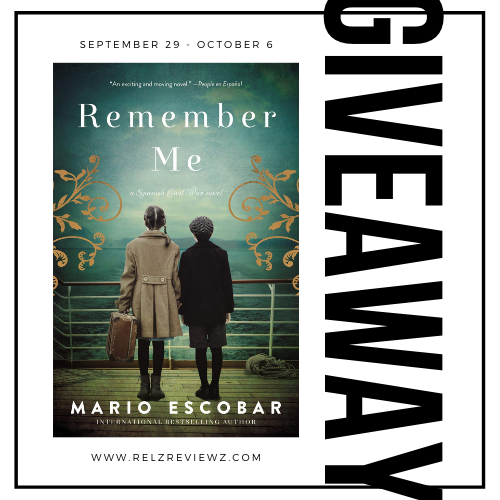


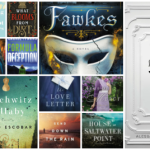



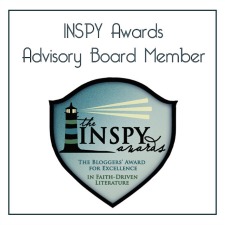




September 29, 2020 at 11:44 pm
This looks like a great read! I don’t know very much about the Spanish Civil War
September 30, 2020 at 12:00 am
I am not familiar with the Spanish Civil War. I am also not familiar with the author and did not rralize that his books had to be translated from Spanish.
September 30, 2020 at 4:10 am
No, I don’t know much about the Spanish Civil War, but I’d love to learn more. I’m intrigued by this post and book.
Thanks for the informative and interesting post!
September 30, 2020 at 8:38 pm
Not at all familiar with the Spanish Civil War but can’t wait to learn about it through this book.
September 30, 2020 at 8:43 pm
Yes, I read Hemingway’s For Whom the Bell Toles.
September 30, 2020 at 10:21 pm
I would be thrilled to read this as I absolutely loved Auschwitz Lullaby even though it broke my heart. I love learning parts of history while enjoying a story by an exceptional author. Thank you so much for sharing. Blessings.
September 30, 2020 at 10:36 pm
I read a historical fiction book The Fountains of Silence last fall and then went to an author talk/signing and learned even more about the awful rule of Franco. Before reading this book, I knew nothing about the civil war.
September 30, 2020 at 10:54 pm
I’m not familiar with the Spanish Civil War.
October 1, 2020 at 12:19 pm
I’m familiar with the Spanish Civil war but would love to learn more about it.
Reading Christian historical fiction is my favorite way to learn about history.
October 6, 2020 at 8:41 am
I haven’t read any fiction books based on the Spanish Civil War…. I’m really excited to start this one! Have a feeling it’s going to make me cry though. I am just finishing The Book of Lost Friends, so I”m gonna have to read something fluffy in between!
October 7, 2020 at 12:40 pm
I’ve heard of it before but I can’t say I’m very familiar with it. That just means I have another read to pick up this book though!